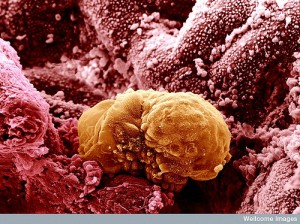 France appeared set to maintain its strict restrictions on human embryonic stem cell research Thursday after the conservative government won over a parliamentary bid to ease up the country’s law on bioethics.
France appeared set to maintain its strict restrictions on human embryonic stem cell research Thursday after the conservative government won over a parliamentary bid to ease up the country’s law on bioethics.
The National Assembly of France voted 73-33 to retain the curbs on Wednesday night. The Roman Catholic Church, as well as conservative legislators protested after a preliminary vote was carried out in the Senate to approve the research.
Revisions on the country’s bioethics law are currently in progress. A second reading of the new bill will be held before the Senate early in June. A final decision is likely to come out by the end of the year.
If the Senate votes to authorize the research, the bioethics bill will go through a conference committee where a version of the bill by the National Assembly will take place.
When it comes to embryonic stem cell research, France has one of the firmer laws in Europe. It has even banned the research, except when it uses imported embryos not for in vitro fertilization in some other countries.
Individuals who oppose embryonic stem cell research claim that it is morally wrong since it damages or destroys human embryos during manipulation. However, proponents of the research believe that it is a bright opportunity to develop new treatments for several medical conditions.
Cardinal Andre Vingt-Trois, France’s head of the Roman Catholic Church, insisted the legislators to oppose the liberalization of the law. He said it would lead to a regression in civilization and state-sponsored eugenics.

